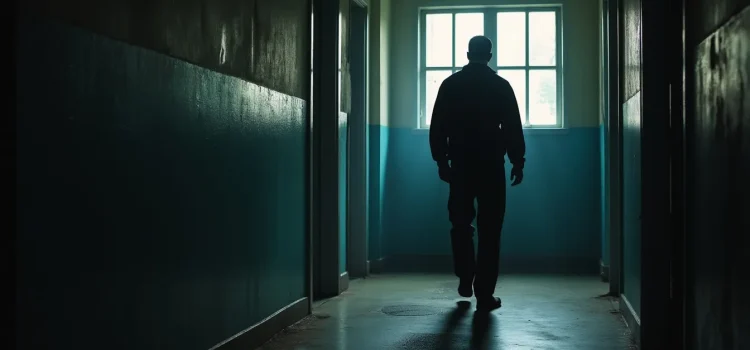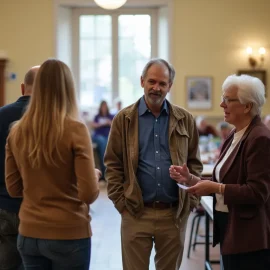

This article is an excerpt from the Shortform book guide to "Gambler" by Billy Walters. Shortform has the world's best summaries and analyses of books you should be reading.
Like this article? Sign up for a free trial here.
What’s it like to go from being a successful businessman to serving time in federal prison? How can someone turn a devastating setback into an opportunity for growth and positive change?
Billy Walters’s prison experience transformed his perspective on life and sparked a passion for helping others. His journey from convicted insider trader to prison reform advocate reveals powerful insights about redemption, family bonds, and second chances.
Keep reading to discover how Walters’s time behind bars opened up his life to good things.
Billy Walters’s Prison Experience
For Billy Walters, prison was a life-changing experience. In his autobiography, he discusses what got him there—and what he got out of it.
Despite successfully evading gambling-related charges, Walters found himself in legal trouble over stock market activities. He received a five-year prison sentence in 2017 for insider trading violations.
Walters’s involvement in the stock market began in the late 1990s. The situation took a serious turn in 2014 when major newspapers, including the Wall Street Journal and New York Times, published articles suggesting he had traded using privileged information. The reports specifically mentioned his connection to hedge fund manager Carl Icahn and suspicious trades involving Clorox, where Icahn held significant shares.
Although initial FBI investigations found no evidence of wrongdoing regarding the Icahn connection, they continued investigating Walters. Their focus eventually shifted to his relationship with Thomas Davis, a Dean Foods board member.
The case broke when Davis, facing separate charges for embezzling from a Dallas charity, struck a deal with federal authorities. To avoid imprisonment, Davis admitted guilt and testified against Walters, revealing he had shared confidential Dean Foods information with him.
A federal jury found Walters guilty in 2017, determining he had used Davis’s insider information to generate $32 million in profits and prevent $11 million in losses. He received a five-year sentence and a $10 million fine. However, his prison term was cut short when President Donald Trump commuted his sentence in 2021, releasing him one year early.
Walters’s Takeaways From Prison
Walters writes that prison drastically shifted his approach to life. In particular, it taught him not to take his life or his loved ones for granted. It also instilled an enduring passion for prison reform.
Walters’s time in prison helped him to reorient his priorities. Most notably, he learned to treasure his time with his family—especially his wife Susan, who stayed married to him and visited him often while he was in prison. He also writes that he prioritizes spending time with old friends, since he knows that many of them won’t be around much longer.
(Shortform note: While the circumstances prompting his shift in perspective certainly weren’t ideal, Walters is fortunate to have had this realization when he did. In The Top Five Regrets of the Dying, palliative care nurse Bronnie Ware shares that one of the most common regrets people have on their deathbeds is that they didn’t spend more time with their families and friends.)
Regarding prison reform, Walters explains that his time in prison illuminated the ways in which prisons fail to prepare inmates for life after their sentences, causing high rates of recidivism. Thus, he’s working to create a program that provides vocational training to inmates, which would allow them to more seamlessly transition back to society. In early 2023, he even committed $2 million to one such program in Nevada, and he hopes to fund several more such programs at other prisons.
| The Data Is Clear: Rehabilitation Works Data supports Walters’s ideas for prison reform: Studies have almost universally found that rehabilitation programs (such as Walters’s vocational training program) lead to much lower recidivism rates than punitive imprisonment. In fact, some studies have found that punishment-focused approaches could be counterproductive and actually increase people’s chances of reoffending. The idea behind punishment is that it provides an incentive for people to make better choices in order to avoid future consequences. However, many people turn to crime because they believe they have no other option; it’s the only way for them to survive in the face of poverty, a lack of education, and limited opportunities. In that context, it becomes clear why rehabilitation produces better results than punishment: It doesn’t matter how much someone fears the consequences of their actions if they can’t see any other possible actions to take. |

———End of Preview———
Like what you just read? Read the rest of the world's best book summary and analysis of Billy Walters's "Gambler" at Shortform.
Here's what you'll find in our full Gambler summary:
- How a man born into poverty made over $100 million
- The three components of Billy Walters’s winning approach to sports betting
- Why Billy Walters went to prison and what he learned there






